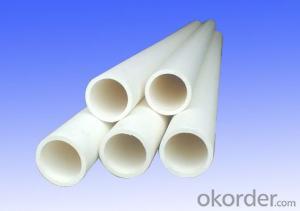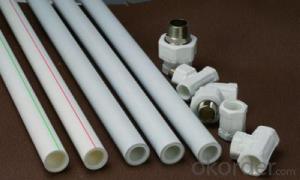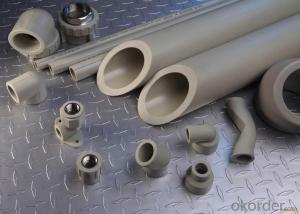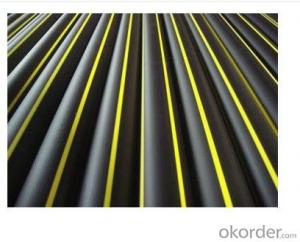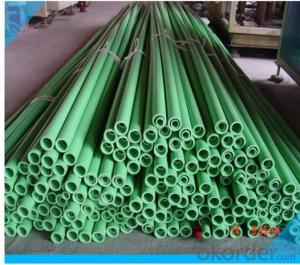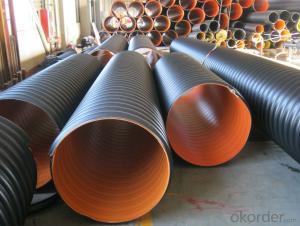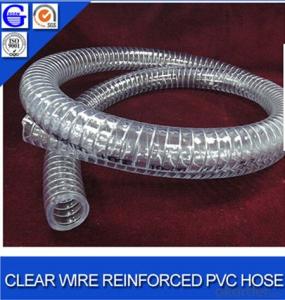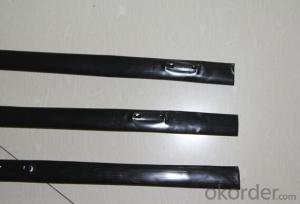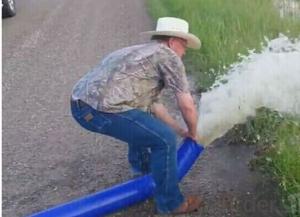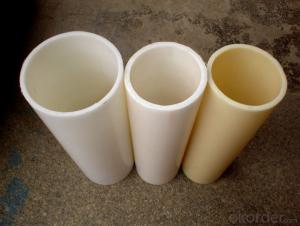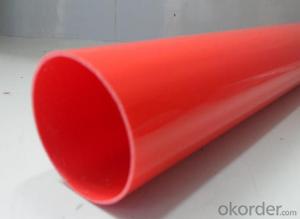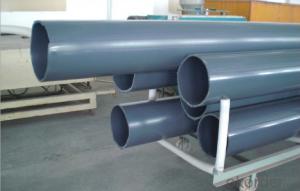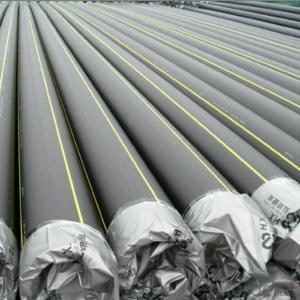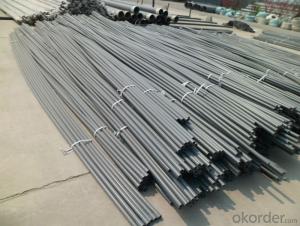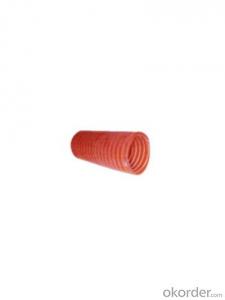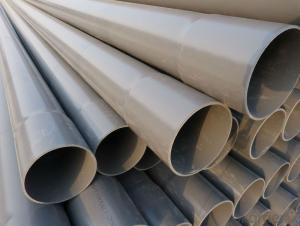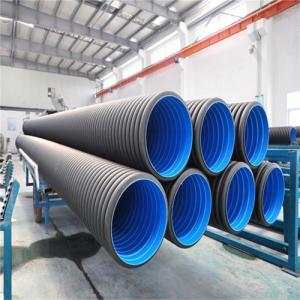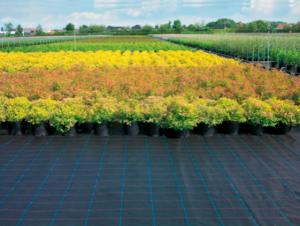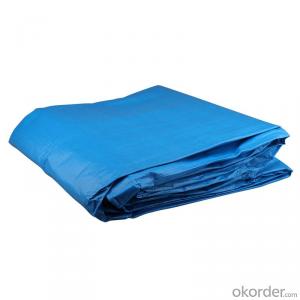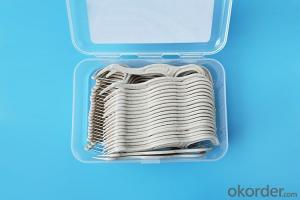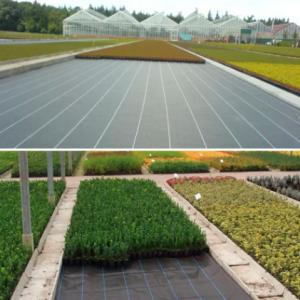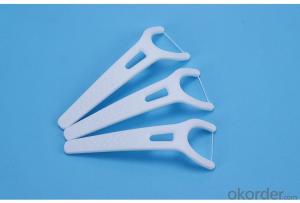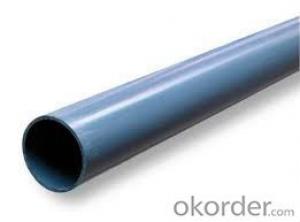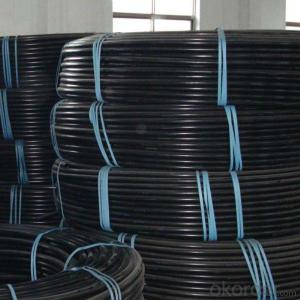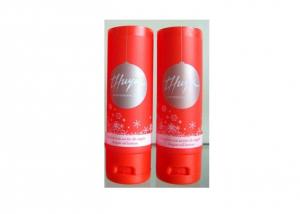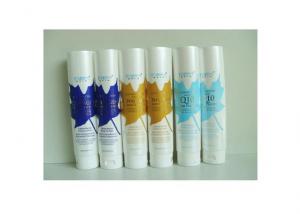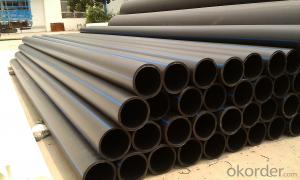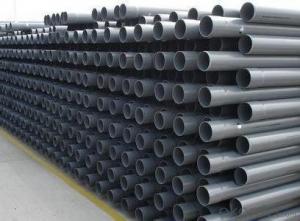PPR Pipes Used in Industrial Field or Agriculture Field Made in China Factory
- Loading Port:
- Dalian
- Payment Terms:
- TT OR LC
- Min Order Qty:
- 1000 pc
- Supply Capability:
- 1000000 pc/month
OKorder Service Pledge
OKorder Financial Service
You Might Also Like
Product Overview
1) Cold / hot water supply facilities for public buildings
2) Food, chemical, electronic industry pipeline networks; Such as Pipeline networks for transporting all kinds of corrosive liquids
3) Drinking water production system pipeline networks; Such as Pure water and mineral water
4) Air conditioning facility pipelines
5) Compressed gas pipeline networks for industry
6) Pipeline networks for swimming pools
7) Pipeline networks for solar energy facilities
8) Agriculture and garden production transporting systems
Advantanges
1, High Temperature Resistance: the maximum sustained working temperature is up to 70 Degrees Celsius, the maximum transient temperature is up to 95 Degrees Celsius.
2, Heat insulation and Saving Energy: low thermal conductivity which is only 1/1500 of brass pipe, and 1/250 of steel pipe.
Non-toxic: no heavy metal additives would not be covered with dirty or contaminated by bacterium.
3, Corrosion Resistant: resist chemical matters or electron chemical corrosion.
4, Lower Installation Costs: light weight and good hot-melt performance can reduce installation costs by as much as 50% over metal piping system.
5, Higher Flow Capacity: smooth interior walls result in lower pressure loss and higher volume than metal pipes.
6, Long Life: more than 50 years under normal conditions.
7, Recycled and Environment-friendly.
Product Description
Pressure | Size(mm) | Pressure | Size(mm) |
PN1.25MPA | 20*2.0 |
PN1.6MPA | 20*2.3 |
25*2.3 | 25*2.8 | ||
32*2.9 | 32*3.6 | ||
40*3.7 | 40*4.5 | ||
50*4.6 | 50*5.6 | ||
63*5.8 | 63*7.1 | ||
75*6.8 | 75*8.4 | ||
90*8.2 | 90*10.1 | ||
110*10.0 | 110*12.3 |
Product Show
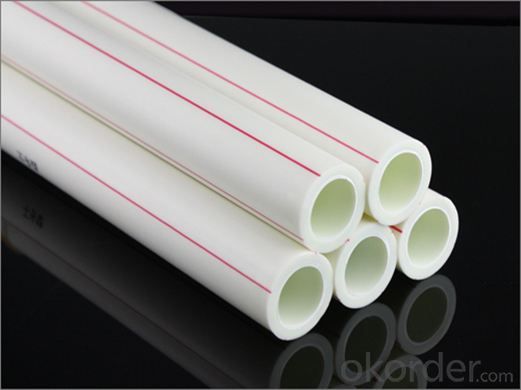
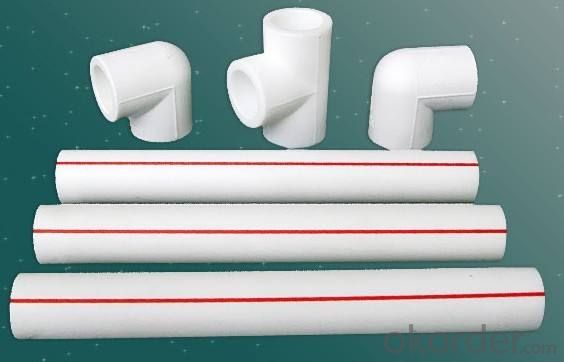
FAQ
Q1: How Can I Get A Sample?
A1: You can get samples by communicate with our export sales.
Q2: How Long Is Delivery?
A2: Delivery time will be30-45days according to order quantity.
Q3: What Is The MOQ?
A3: MOQ depends on different items.
Q4: What Is Our Normal Payments Terms?
A4: Our normal payment terms now is: T/T, L/C or western union, pay
- Q:How do you cut plastic tubes?
- To cut plastic tubes, you can use a variety of tools such as a sharp utility knife, a hacksaw, or a tube cutter. Simply mark the desired length on the tube, secure it in a vise or clamp, and carefully cut along the marked line using your chosen tool.
- Q:It is also Nat'l Buy a Musical Instrument Day!!
- The aluminum content in the metal tubes is not good for tooth enamel.
- Q:Are plastic tubes safe for food and beverage applications?
- Yes, plastic tubes can be safe for food and beverage applications. However, it is essential to use food-grade plastic materials that are approved by regulatory bodies and meet specific safety standards. It is also crucial to ensure proper cleaning and maintenance to avoid any potential contamination.
- Q:Are plastic tubes resistant to water?
- Yes, plastic tubes are generally resistant to water.
- Q:Can plastic tubes be reused?
- Yes, plastic tubes can be reused depending on their condition and purpose. If they are clean and undamaged, they can be washed and used again for various applications such as packaging, storage, or transportation. However, it is important to consider the type of plastic and any specific regulations or guidelines for reuse to ensure safety and effectiveness.
- Q:What is the minimum wall thickness for plastic tubes?
- The minimum wall thickness for plastic tubes can vary depending on factors such as the material used, the intended application, and the manufacturing process. However, in general, it is recommended to have a minimum wall thickness of at least 0.5mm to ensure structural integrity and prevent issues such as deformation or breakage.
- Q:While changing the toilet paper my daughter accidentally flushed down the toilet the inner rod that goes through the cardboard tube to keep the roll in the holder. Unfortunately it’s large enough to cause a blockage so I need to get it out. It’s also made of hollow plastic, and will float – so the fact that I can’t see it means it is at least on the other side of the U-bend. A wire hook won’t help, there’s nothing to hook on to. How can I get it out?
- Put a mask and snorkel on and dive in to try and find it.
- Q:And does Bon Jovi use it in songs such as Livin' On a Prayer? B/c is sounds like it.
- It is called a talk box, the company heil makes the original one that peter frampton used in the 70's, it is a pain to hook up. there is a fairly newer one on the market called a banshee talk box, basically there is a speaker in the box on the floor it puts out your guitar up thru the plastic tube, when you put your mouth on it. you can manipulate the sound and it is picked up by the microphone.
- Q:How do plastic tubes compare in cost to other packaging options?
- Plastic tubes can vary in cost depending on factors such as size, material, and customization. However, in general, plastic tubes tend to be cost-effective compared to other packaging options such as glass or metal containers. The production and manufacturing costs of plastic tubes are usually lower, making them a more affordable choice for packaging various products.
- Q:Can plastic tubes be used in high-pressure applications?
- Yes, plastic tubes can be used in high-pressure applications, but it depends on the specific type of plastic used and the pressure level required. Certain types of plastic, such as high-density polyethylene (HDPE), polyvinyl chloride (PVC), and polypropylene (PP), have good resistance to pressure and can withstand high-pressure environments. However, it is important to consider factors like temperature, chemical compatibility, and the specific requirements of the application when selecting plastic tubes for high-pressure use.
1. Manufacturer Overview |
|
|---|---|
| Location | |
| Year Established | |
| Annual Output Value | |
| Main Markets | |
| Company Certifications | |
2. Manufacturer Certificates |
|
|---|---|
| a) Certification Name | |
| Range | |
| Reference | |
| Validity Period | |
3. Manufacturer Capability |
|
|---|---|
| a)Trade Capacity | |
| Nearest Port | |
| Export Percentage | |
| No.of Employees in Trade Department | |
| Language Spoken: | |
| b)Factory Information | |
| Factory Size: | |
| No. of Production Lines | |
| Contract Manufacturing | |
| Product Price Range | |
Send your message to us
PPR Pipes Used in Industrial Field or Agriculture Field Made in China Factory
- Loading Port:
- Dalian
- Payment Terms:
- TT OR LC
- Min Order Qty:
- 1000 pc
- Supply Capability:
- 1000000 pc/month
OKorder Service Pledge
OKorder Financial Service
Similar products
New products
Hot products
Related keywords
